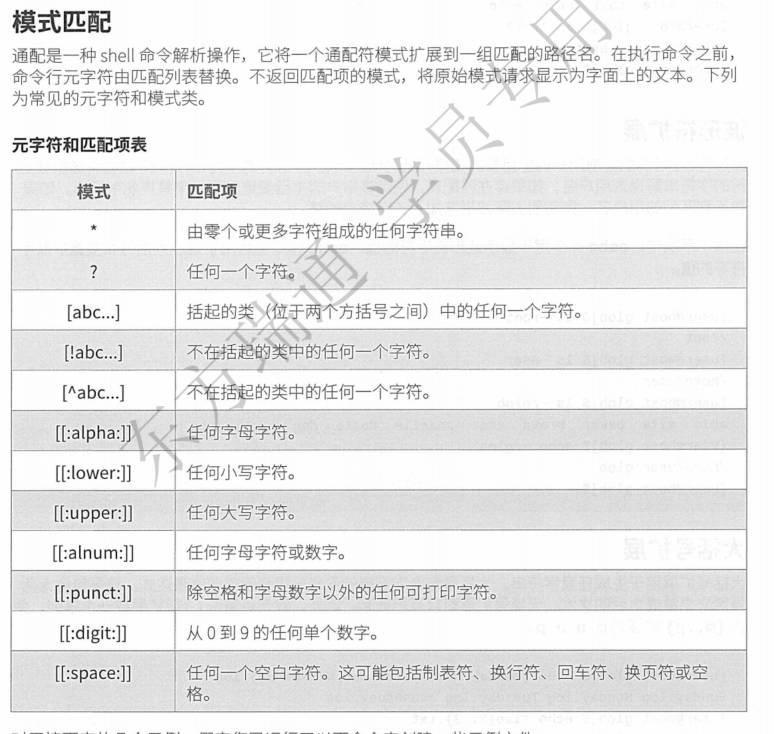bash中的通配符
\ 转义符,跟在\之后的特殊符号将失去特殊含义,变为普通字符。如\$将输出“$”符号,而不当做是变量引用。
$ —— 用来提取变量值
[root@shell ~]# echo $USER
root
[root@shell ~]# echo $HOME
/root? —— 匹配任意单个字符(不能匹配隐藏文件)
? 匹配一个任意字符
[root@shell ~]# mkdir /script
[root@shell ~]# cd /script/
[root@shell script]# touch {a,b,c,d,e}.txt
[root@shell script]# touch haha.txt
[root@shell script]# ls ?.txt
a.txt b.txt c.txt d.txt e.txt* —— 匹配0个或者多个任意字符,注意这个和正则表达式中的 * 不同
* 匹配0个或任意多个任意字符, 也就是可以匹配任何内容
[root@shell script]# ls *.txt
a.txt b.txt c.txt d.txt e.txt haha.txt[abcde] —— 匹配一组字符中的任意一个
[] 匹配中括号中任意一个字符。 例如: [abc]代表一定匹配一个字符, 或者是a, 或者是b, 或者是c。
[-] 匹配中括号中任意一个字符, -代表一个范围。 例如:[a-z]代表匹配一个小写字母。
[^] 逻辑非, 表示匹配不是中括号内的一个字符。 例如:[^0-9] 代表匹配一个不是数字的字符。
[root@shell script]# ls [acd].txt
a.txt c.txt d.txt
[root@shell script]# touch ac.txt
[root@shell script]# ls [abcd][c].txt
ac.txt
[!abcde] —— 取反,匹配除了a、b、c、d、e之外的任意一个字符
[root@shell script]# ls
ac.txt a.txt b.txt c.txt d.txt e.txt haha haha.txt
[root@shell script]# ls [!ac].txt
b.txt d.txt e.txt其他
